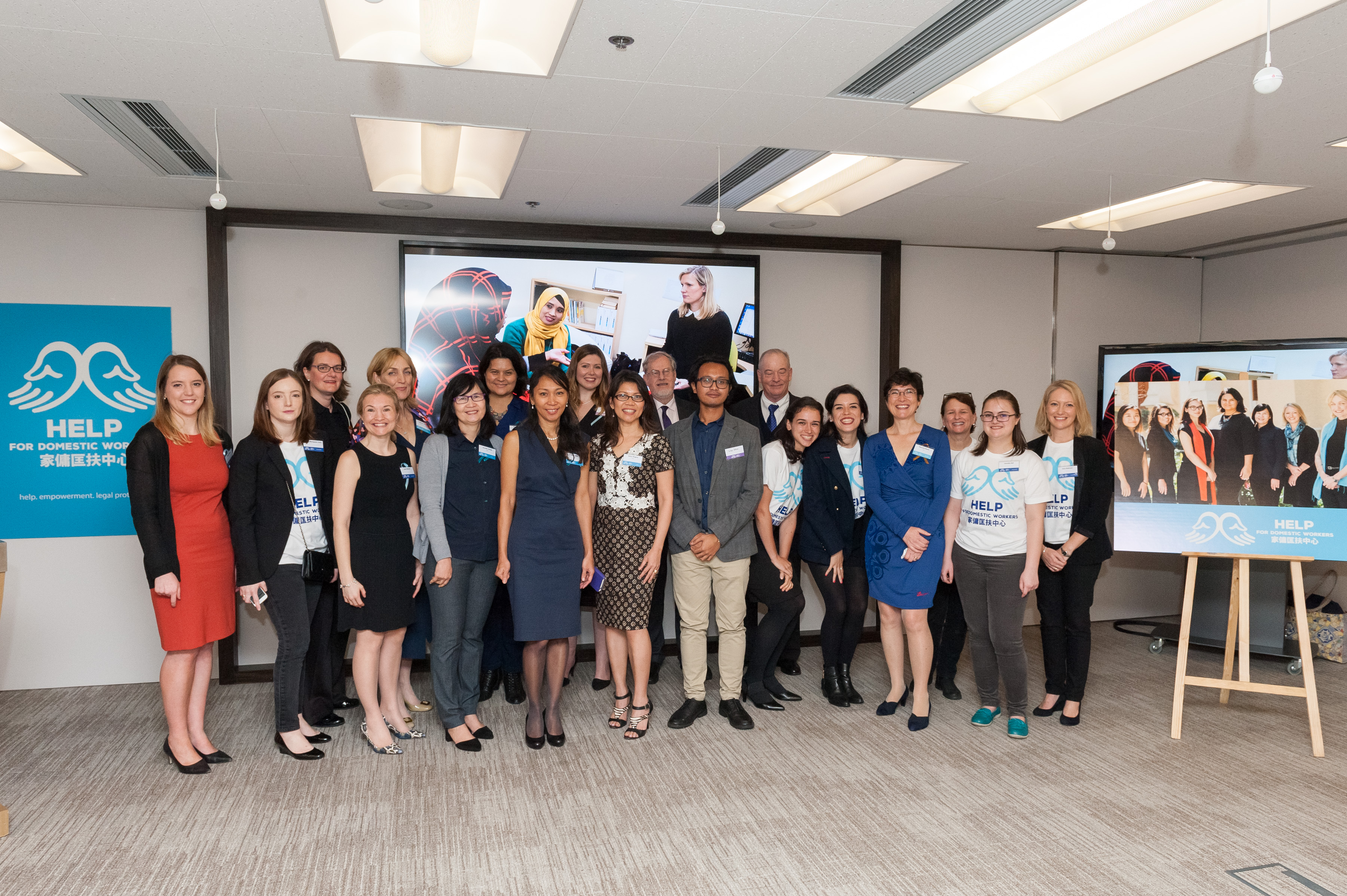Natasha started her postgraduate certificate in law last September and began her search for an organisation to volunteer for which would put her skills to use and satiate her drive to do something good with all she had learned. Hear about how she found just what she was looking for, and more, with HELP.
HELP: Tell us about your first encounter with a domestic worker.
Natasha: As someone who was born and raised in Hong Kong, domestic workers are a huge part of my life and have been for as long as I can remember. My first encounter with a domestic worker was at home – Auntie Lani (we always refer to our domestic workers as “Auntie”) who became an integral part of my family just after I was born. She looked after me for the first six years of my life.

HELP: How did you get involved with HELP?
Natasha: I had been desperately searching for an organisation to volunteer for after starting my postgraduate certificate in law last September. I was looking for an organisation that would teach me about advocacy, wanting to put my legal education to good use and make a positive difference. I found an advertisement for HELP in an email subscription 'Volunteering in Hong Kong'; their mission and work piqued my interest and admiration—this was the meaningful work I had been looking for—and so I sent in an application without hesitation. Next thing I knew, I was at the office being interviewed and started my first full day of volunteering the Wednesday after!

HELP: Why do you feel supporting domestic workers, and HELP, is so important?
Natasha: Domestic workers and the work they do is so often undervalued and their rights, as lawful employees, are so often more limited than they should be. I consider supporting and helping domestic workers in fighting for their rights as essential, especially given their undeniable significance in the day to day lives of most Hong Kong families as well as our economy at large. I remember being shocked, learning that domestic workers represent 3.7% of Hong Kong’s GDP, but of course that makes sense! This statistic, and how it initially shocked me, confirms the sad fact that despite the domestic workers’ overwhelming contributions, our appreciation and understanding of their entitlements, rights and needs are far from good enough. In volunteering for HELP, I feel that I am able to go a small way in changing this.
HELP: From volunteering with HELP what do you think are the most common issues domestic workers in Hong Kong are facing?
Natasha: The first is domestic workers being charged excessive agency fees. The second is the exploitation domestic workers suffer at the hand of their employers, sometimes unknowingly in cases where employers take away a 24-hour rest day and sometimes knowingly in the cases of verbal or even physical abuse.
HELP: What’s one thing you've learnt about Hong Kong through your work with HELP?
Natasha: I think the biggest takeaway is the fact that most Hong Kongers do not seem to realise or appreciate the fact that domestic workers are workers just like every other employee. They should be entitled to the same rights, same freedoms and same protections under the law as other lawful employees.

HELP: What do you wish the public knew about domestic workers in Hong Kong?
Natasha: It might seem like an exaggeration to say that one could not live without their domestic worker, but for the families with children and two working parents, of which there are many, it is unquestionably true.
If Hong Kongers could take a step back and think about their lives without a domestic worker they might gain a clearer awareness of how much more domestic workers ought to be appreciated and respected.
HELP: What advice do you have for domestic workers who are being mistreated?
Natasha: General awareness of domestic workers’ rights is poor and therefore it might be that you are unsure whether or not you are being mistreated. Speaking to someone who is aware is the best way forward. Come to HELP—we are here to HELP! Make your situation known to someone who can give you the guidance you need.
HELP: What’s the best way to start a conversation with someone who doesn't understand some of the issues domestic workers face?
Natasha: I think the best way to approach it is to have a frank conversation about what they think domestic workers should be entitled to do and have under the law. If there are discrepancies between what they think and what the realities are, the rest of the conversation should address these differences and explore the reasons behind why they exist in the first place.
Thank you, Natasha, for sharing and for dedicating your time to this cause we all cherish.
If you are interested in volunteering like Natasha or making your contribution in a different way, learn how you can get involved here.

